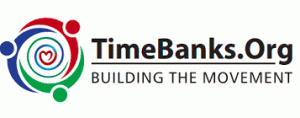Reflection by Edgar Cahn
Having been written off as unemployable because of her mental illness, Cynthia transformed herself into a Certified Peer Specialist deploying her unique capacity to enable others to cope with their own diagnosed deficiencies.
Humans are a species that evolved by overcoming deficiencies. That began around 530 million years ago when some centipede-like animals found out there was a world above water. It took another 30 million years before those prehistoric fish crawled out of the water and began the evolutionary lineage we sit atop today.
Our seafaring ancestors had to develop organs for survival. In EVOLUTION OUT OF THE SEA Christie Wilcox described that journey:
“Those first tetrapods came from an ancient lineage of fish with meaty, paddle-like fins instead of the flimsy rays of most modern day fish species. These lobe fins, covered with flesh, were ripe for adapting into limbs. ... Overall, it took a long 30 million years or so to develop a body plan fit for walking on land. … With gills adept at drawing oxygen from water, early tetrapods were ill-equipped to breathing air. It wasn't until around 360 million years ago that tetrapods truly breathed like their modern descendants. While we may never understand why they left the water, we are thankful that they did.”
There is both biological evolution and social evolution. As a species, we developed money as a medium of exchange. There is no agreement as to when that happened. In 350 BC, Aristotle wrote about the nature of money. Historically, money took two forms: debits and credits on ledgers and tangible media of exchange made from wood, paper, bamboo, and metal.
Now comes TimeBanking. TimeBanking began in the early 1980’s. Its emergence represents a form of fiscal evolution in response to the limited response of our monetary system to critical needs and challenges posed by aging, racism, automation, artificial intelligence, and an endangered ecosystem.
TimeBanking may best be understood as an evolutionary response to the need of our species for more advanced forms of social interaction incorporating a pay-it-forward reciprocity that fuses self-interest and altruism to advance our chances of survival.


Please sign in or register to make a comment.